Centering the humanities at Carleton
Clara Hardy talks running the Humanities Center, including its Faculty Research Seminars, the Student Research Partnership program and the Center’s new podcast.
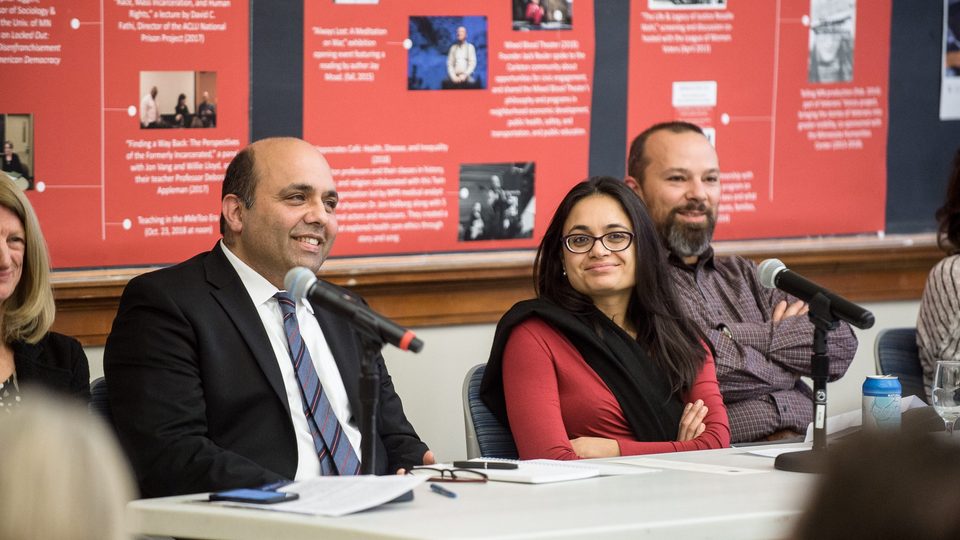
Clara Hardy, Carleton’s David and Marian Adams Bryn-Jones distinguished teaching professor of the humanities and professor of classics, is a busy woman. Running Carleton’s Humanities Center occupies two-fifths of her teaching time, not to mention running events outside of regular hours and continuing to teach her regular courses, plus classes for the Summer Liberal Arts Institute. Still, she found the time to sit down and talk about the history of the Humanities Center, what she does as its director and why it is so important to the Carleton community.
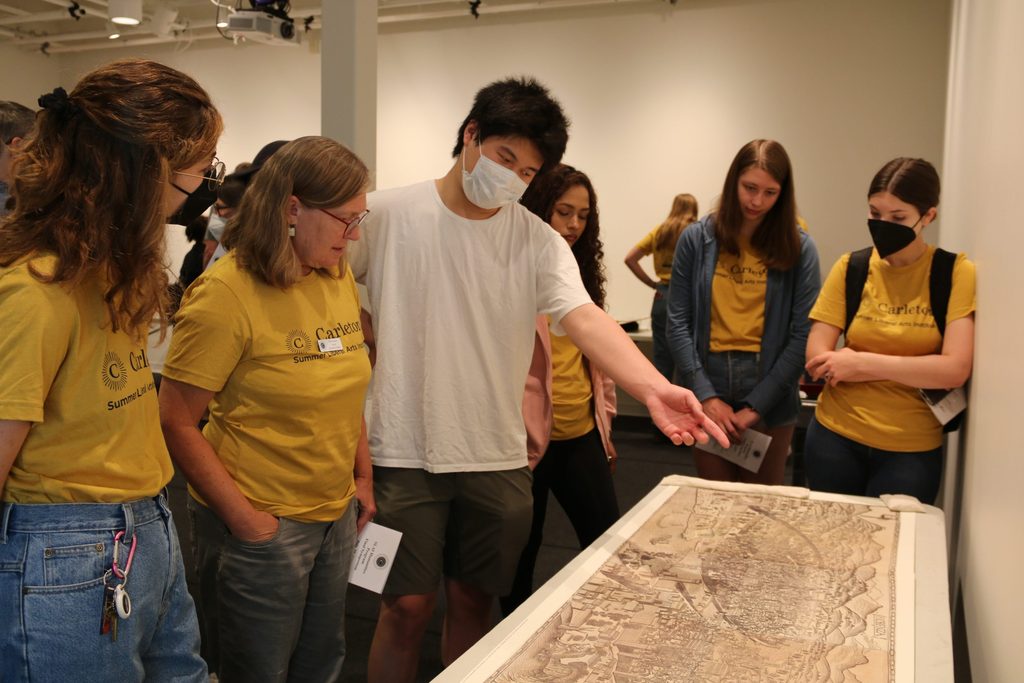
The Humanities Center began in 2005 with a New Directions Grant from the Mellon Foundation. Now partially funded by a gift to Carleton from David and Marian Adams Bryn-Jones, the Center brings greater visibility to the project of the humanities and engages students in that work—but its driving conceptual force is celebrating and promoting the humanities faculty.
“At Carleton, there’s much more emphasis on teaching than research, and everybody who’s here loves that,” Hardy says. “That’s why we’re here, right? We feel that teaching is the most important thing. But in general, we as faculty have lots of opportunities to talk with our colleagues about our teaching and relatively less to talk about our research. So the Humanities Center came out of a combination of wanting to make what’s done in the humanities more visible and prominent on campus while also particularly centering faculty research and creating a venue where faculty can come together and talk about that.”
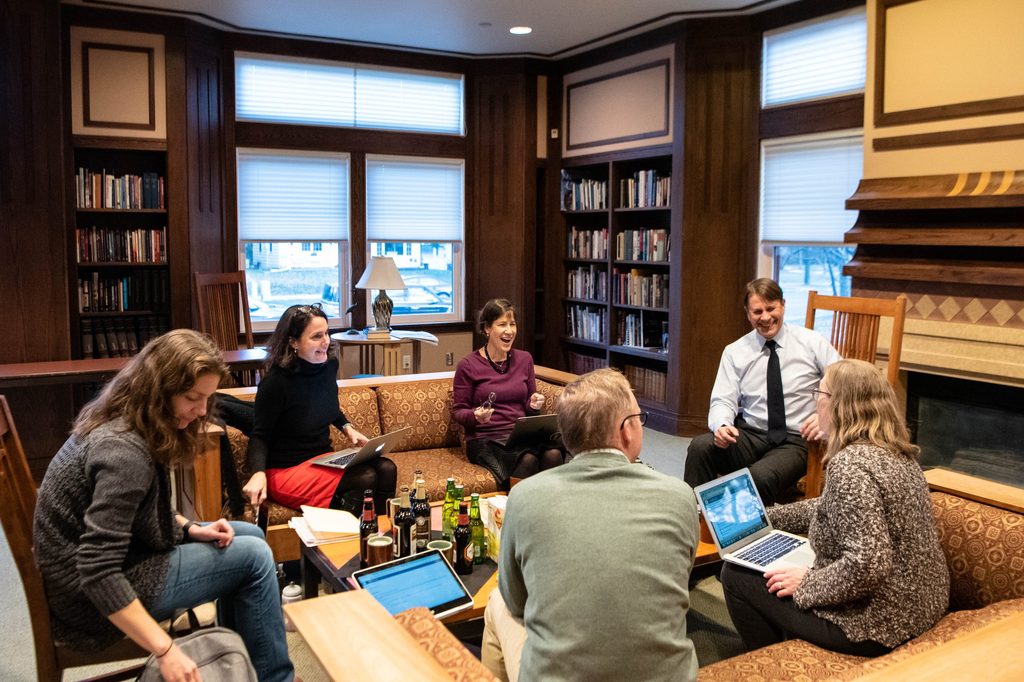
The Humanities Center’s annual Faculty Research Seminars serve this purpose by providing opportunities for faculty to discuss their intellectual and artistic inquiries. Participating faculty fellows read pertinent theoretical and critical works centered on a common theme while working on their own individual research or artistic projects over the course of one academic year. The fellows meet throughout the year, discussing and improving their scholarship and creative work before presenting the results to the rest of campus through a public forum the year following the seminar.
The Center’s connection to the rest of campus is important to its leadership. For example, they recently formalized an affiliation with Ethical Inquiry at Carleton (EthIC), which has a history of funding Center initiatives with ethical components, by adding its director to the Humanities Center board. Carleton students have also always been a priority for the Center. The founding committee wished to involve students in the highlighting of faculty research from the beginning; therefore, in 2009, the Student Research Partnership (SRP) program was born.
“Though the Center’s foundation was in faculty research, it has developed more and more to fold students into that and make what humanities research looks like visible and attractive to students,” says Hardy. “We’re still focused on faculty research, but a major part of that is bringing students into the process of that research and allowing them to see and participate in it. And now, thanks to the amazing people in Development, we have quite a substantial endowment for the Student Research Partnership, which we are thrilled about!”
The SRP program is one of Hardy’s favorite parts of running the Humanities Center.
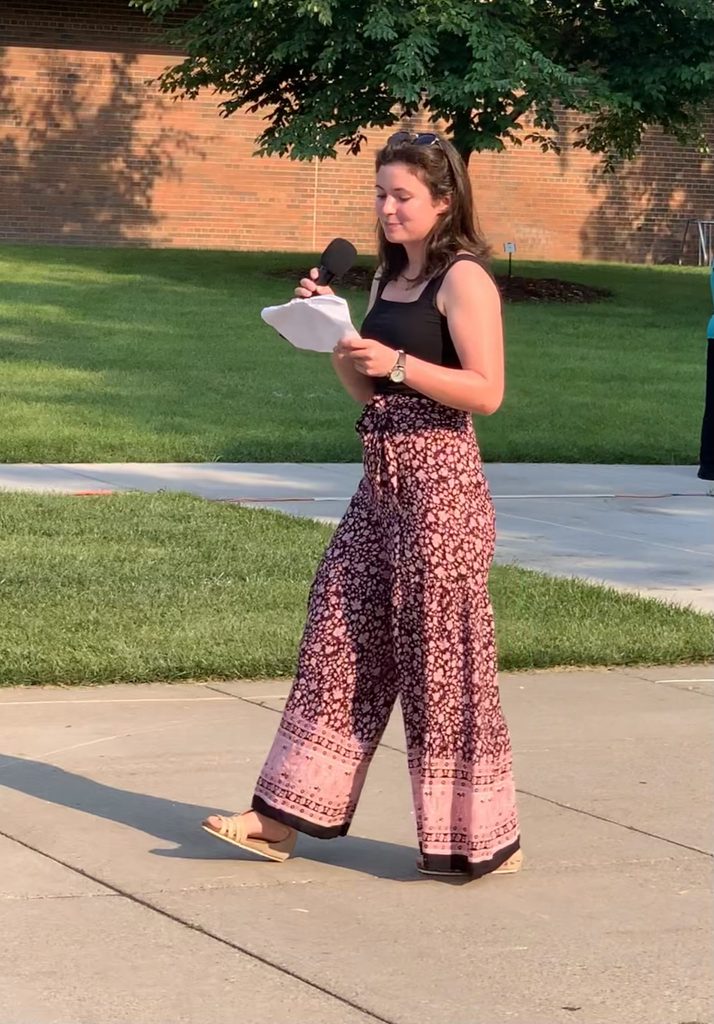
“I love the SRP program because it’s about learning,” she says. “The kind of learning that goes on in those partnerships is phenomenal and that’s what Carleton is all about. Also, our SRPs are pretty unique to our institution. On the science side, a faculty member having a lab and hiring students to help with their research is totally common at most other colleges and universities, but that’s completely not the case in the humanities. Because of that, getting the SRPs off the ground involved a lot of creativity and outreach.”
Their efforts show, as Hardy reports seeing a large ripple effect amongst the faculty. Professors will see SRPs highlighted on Carleton News or in the internal newsletter, Carleton Today, and get inspired to apply for an SRP of their own. Hardy has led a few herself and found them quite useful.
“I published a book a couple of years ago,” she explains, “which I had intended as a general audience book, but the publisher wanted to market it to colleges as a textbook. Because of that, the ideal audience for it was undergraduates, so for the two years I was writing it, I had Carleton students read it, especially those who were not classics majors. They would tell me where I needed more information, where I had too much information or if it was unclear, and that was enormously helpful.”
Hardy knows firsthand how advantageous an SRP can be for faculty and students alike, so she encourages students to reach out to their professors about participating in one. She knows that isn’t comfortable for everyone, though, so she tries to make the program as approachable as possible.
“There are a lot of opportunities that are not necessarily obvious,” she says, “and the easiest way to find them is to go ask. Go ask faculty that you know whose work you find interesting. That can be hard, because there’s a type of student who will do that with no problem, and there’s another type of student for whom that’s a real challenge. We want all of them to be able to participate, so we’re working toward making it more accessible to all students and closing any information gaps.”
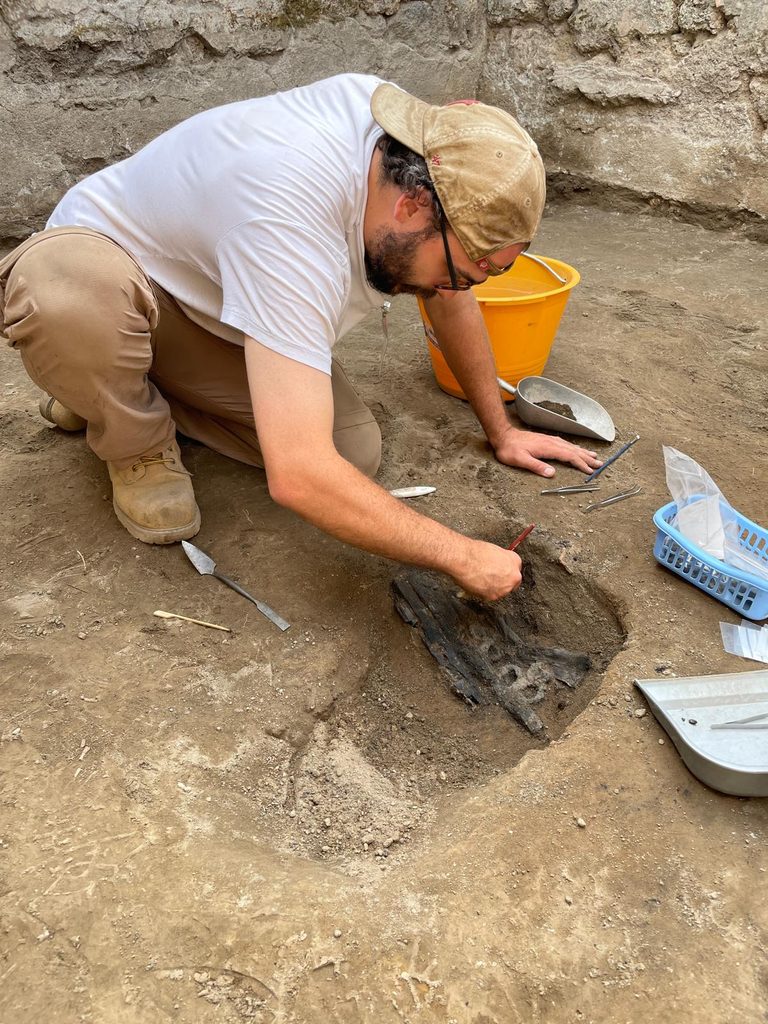
Some of those gaps have closed already due to Humanities Centered, the Center’s podcast that Hardy started this year.
“The podcast was something that Susannah [Ottaway, Laird Bell professor of history] and I talked about,” Hardy says. “I’d been interested in it for a while and I knew the only way it was going to happen is if we just went for it, so we did! It’s been really fun for me to talk to people about what they’ve been doing and have students and faculty from the SRP program in the room together… The SRPs all get write-ups that we put in a yearly program book, but they’re very short. The podcast conversations allow us to drill into more of what’s going on and that has been a lot of fun.”
Hardy has been doing it all on her own so far, but starting this year she’ll have student help—two student managers who will work a few hours a week. Not only will they help lessen her massive workload, Hardy believes that “having student workers helps me think about what students might like to hear on the podcast. What might a student actually listen to?”
Also, the students won’t only work on the podcast. They will help with programming, too, which is the third element of the Center’s budget after the Faculty Research Seminars and the SRPs.
“For next year, I’m starting up some more student-facing programs with the help of the student managers,” says Hardy. “We’re going to try launching a program for incoming first years to apply to be humanities fellows, which would be a little cohort of six to eight students who would get together for humanities programming and events. As a student, you’re so focused on your own work that it’s difficult to take advantage of all the great things going on around campus. This cohort would be a way to fix that, since these events will become something they all go to together. It will also build some community solidarity around being interested in the humanities.”
This cohort joins other campus-wide programming hosted by the Humanities Center, which Hardy is especially excited to start up again after the pandemic has delayed her programming dreams for the last two years. One of her favorite programs is Humanities in Focus, a series of events on a single theme occurring every fall term.
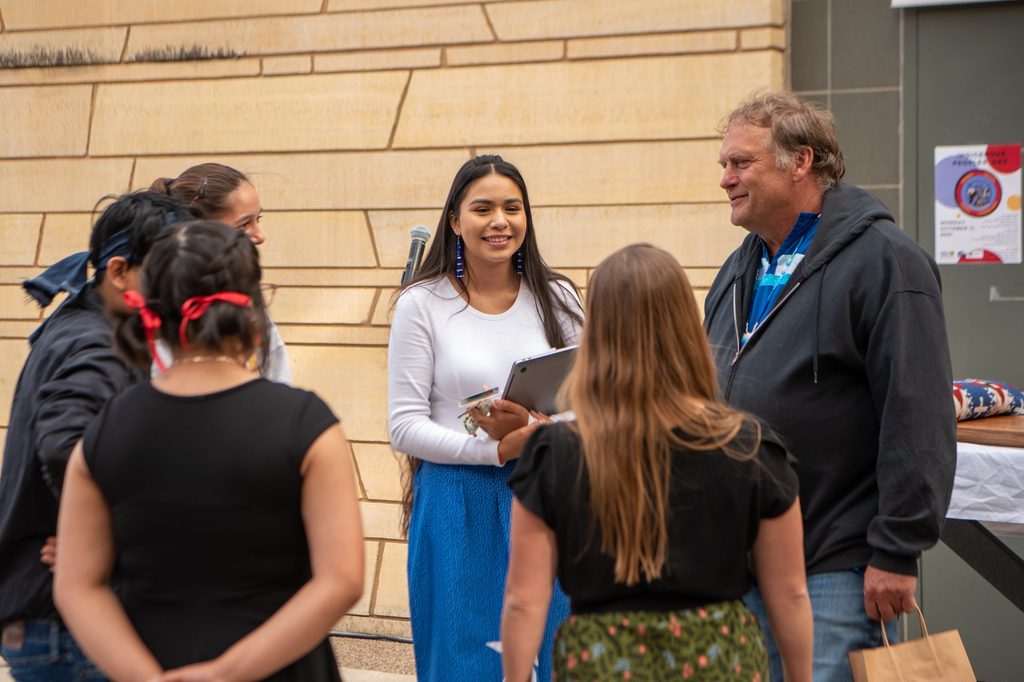
“The Humanities in Focus for 2020 was supposed to center on the Why Treaties Matter exhibit and all of the Indigenous Peoples’ Day celebrations, which was funded by and conceptualized as a part of Carleton’s Public Works Grant. Obviously that had to be delayed for a year,” Hardy says. “Because it had to be delayed, though, we got a bit more time to set it up. We ran reading groups on Zoom in the spring of 2021 in anticipation of the fall events, and there were around 100 people signed up for each one of those reading groups… I loved seeing the students’ energy when they asked themselves, ‘Oh my god, why did I not learn this in school?’ Treaties are a huge feature of our history and society, and there was such hunger to know about the topic and such a sense of what the stakes were in learning it. That was extremely exciting for us in the humanities.”
Events that showcase the importance of the discipline make all the hard work worth it for Hardy.
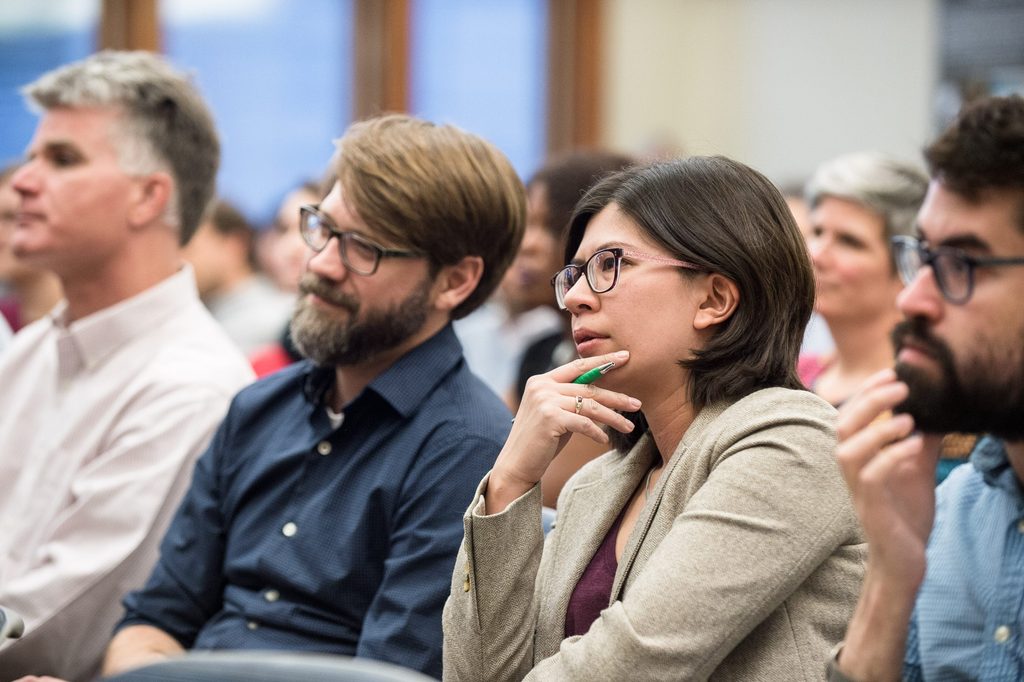
“When Lori Pearson was director, we had a 10th anniversary celebration,” she says. “They made big posters of all the Faculty Research Seminar topics, the participants and what they were working on, and there was a panel. Being in the room with such a large number of humanities faculty who had been involved in all of these initiatives over the last 10 years made me think back on what we’ve added to the campus. It was such an inspiration. We got to say, ‘Yes, we are doing some great stuff here!’ We’re all doing this because we love it and because we feel that it’s deeply, deeply valuable and has something to offer Carleton and beyond. The world would be impoverished and endangered without the humanities, so when you have this kind of event where you can actually see that energy and excitement, it’s a wonderful thing.”
In all her interactions with the Carleton community, Hardy wants to make sure Carls know that the Humanities Center is there to help them succeed. Whether it’s through highlighting a faculty member’s academic inquiry, getting a student involved in the research process or making the humanities more visible to the entire college, Hardy and the rest of the Humanities Center team are always focused on enhancing everybody’s time on campus.
“I want Carls to know that we have so many opportunities that we’re eager to share,” Hardy says, “and that we’d love to hear if there are other things they would like to see!”
Erica Helgerud ’20 is the news and social media manager for Carleton College.